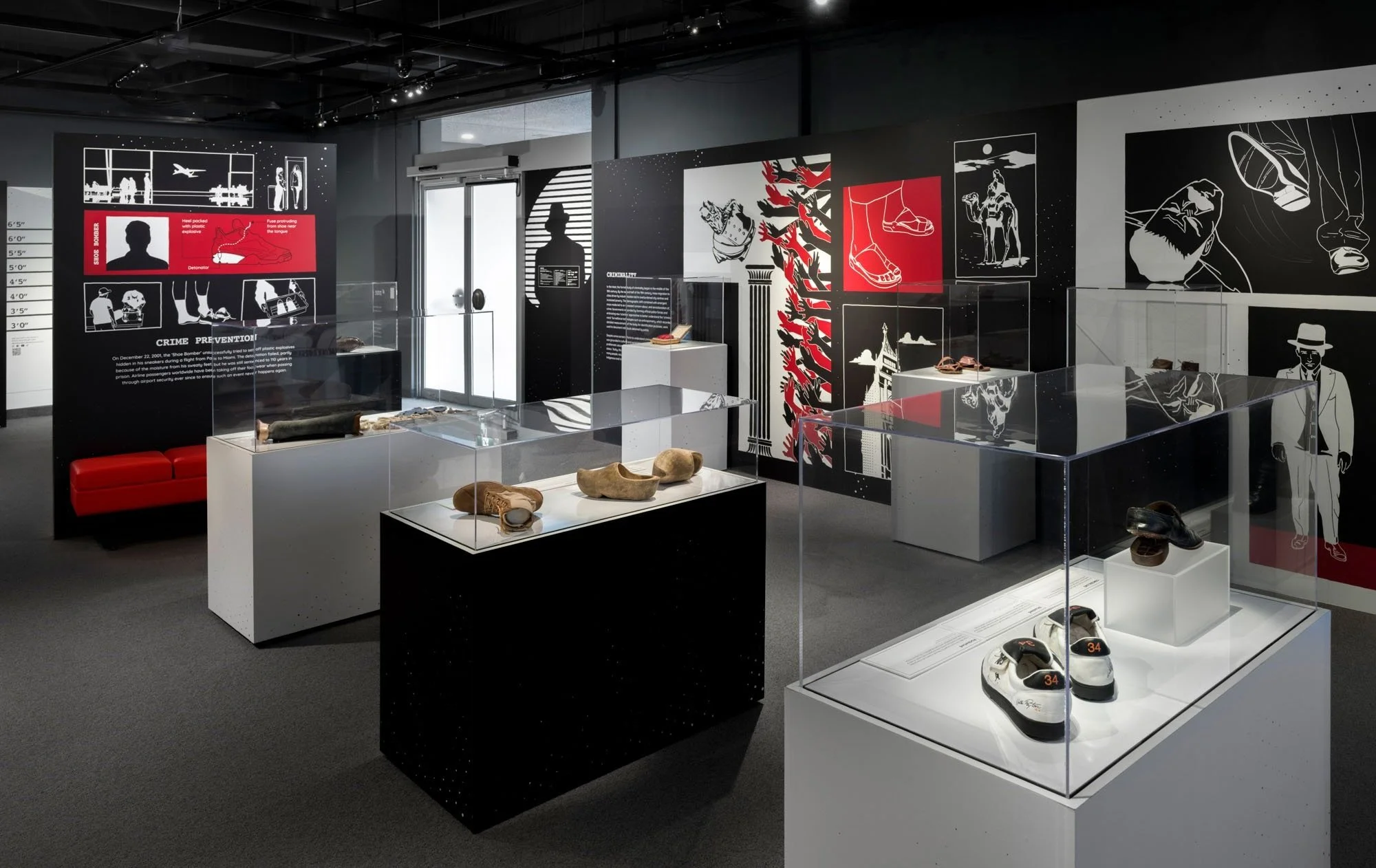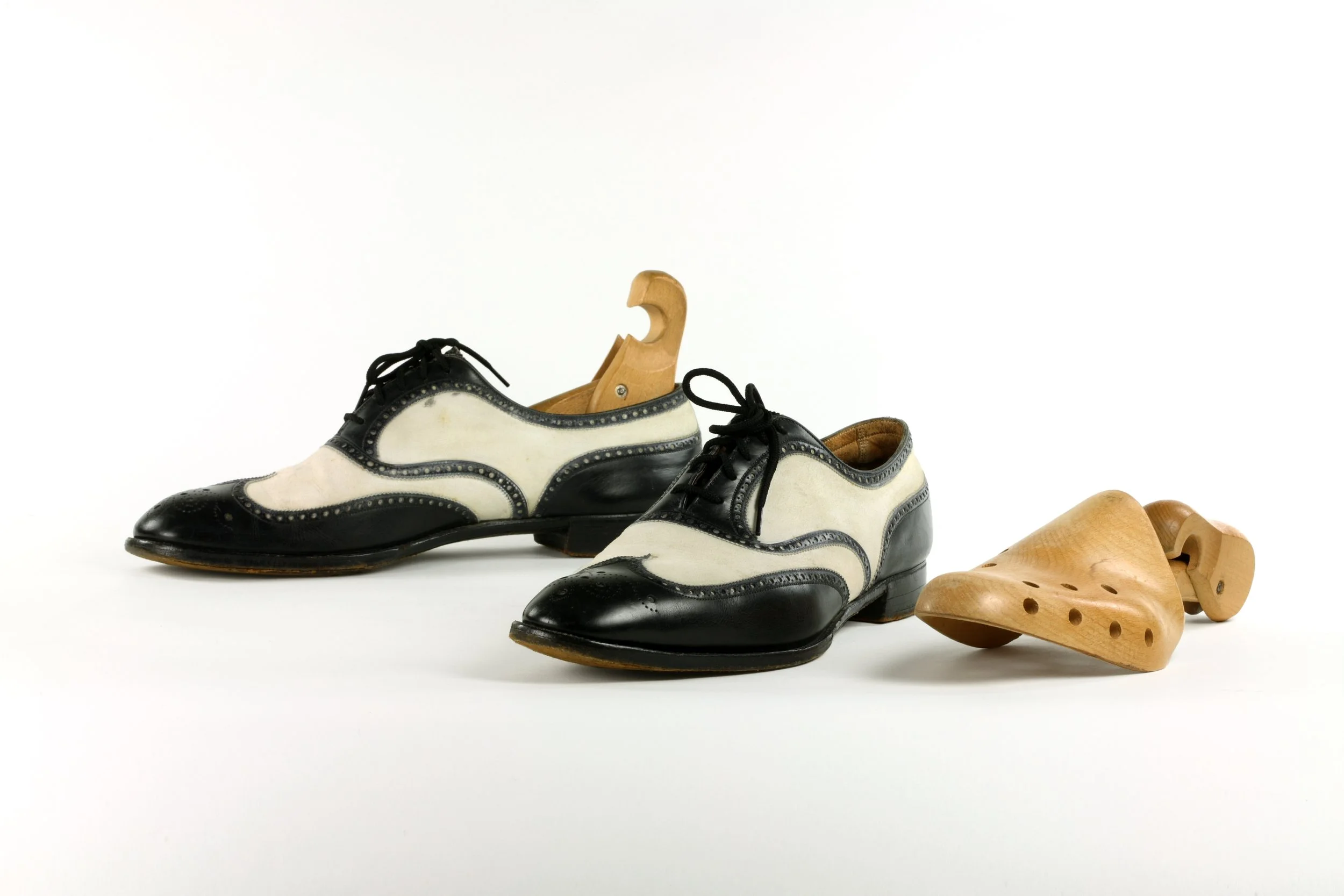Examining the development of footwear forensics as a means of solving crime as well as the social constructions of criminality from the nineteenth century to today, Exhibit A: Investigating Crime and Footwear considers how clothing and footwear influence cultural ideas informed by assumptions and bias.
“Footwear can be incriminating on multiple levels”, says Elizabeth Semmelhack, Director and Senior Curator, Bata Shoe Museum. “The ‘wrong’ choice of shoe can lead to suspicion while footprints left behind can lead to detention. This exhibition explores the wide range of ways in which crime and footwear intersect.
Over a century ago, French criminologist Edmond Locard established the “exchange principle,” which suggested that objects from crime scenes were more truthful and reliable than people’s testimony. It was argued that witnesses could forget or lie about events, but stains, fibres, and footprints provided unbiased proof of guilt or innocence. While clothing and especially footwear offers important clues in criminal cases, it also plays a much more complex role in both actual crime and who we, often wrongly, have culturally deemed to be criminal. This exhibition will take visitors on a journey to sleuth out the central but complex role of footwear in crime, policing, and the judiciary system.
"Whether the footwear in Exhibit A was worn to elude capture, smuggle tools, project glamour, provide employment in prison, used as evidence in court or as a weapon, it has literally left its mark on the history of criminal investigation”, says Alison Matthews David, Professor, School of Fashion, Toronto Metropolitan University. “We hope that this exhibition offers you the opportunity to sleuth out your own clues to the mysteries held within these fascinating and often troubling objects."
Curated by
Elizabeth Semmelhack, Director and Senior Curator, Bata Shoe Museum
Dr. Alison Matthews David, Professor at the School of Fashion, Toronto Metropolitan University
The Bata Shoe Museum is open Monday to Saturday from 10 am to 5 pm and Sundays from 12 pm to 5 pm. The BSM is pleased to offer free general admission every Sunday. Indigenous visitors are always welcome for free.
CO-RESPONDENTS
In the 19th century, two-toned spectators were associated with men’s leisure and play. By the 1930s, spectators were seen as a bit flashy, the footwear of playboys and gangsters. In England, this connotation was captured by their alternate name, ‘co-respondents,’ a term used in British divorce cases to identify the person with whom infidelity was committed. This particular pair was worn by Bela Lugosi, who famously played the vampire Draculaon screen. Lugosi fit the model of a ‘player’ perfectly; He was married five times. His third marriage lasted only four months, and the ‘co-respondent’ named in court was Hollywood star Clara Bow.
Alan McAfee Ltd., English, c. 1930s - Collection of the Bata Shoe Museum.
Image, 2023 ©Bata Shoe Museum, Toronto, Canada

